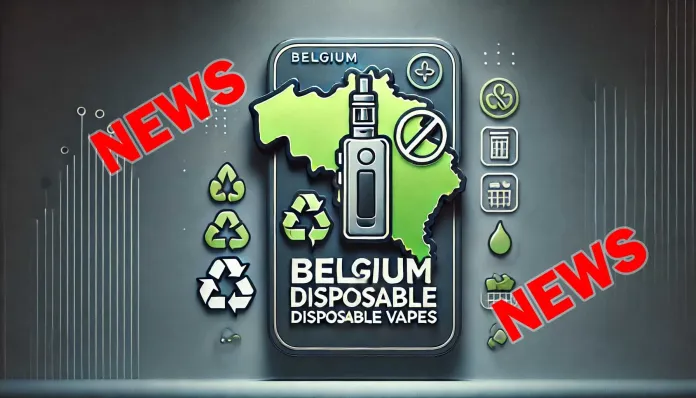
A Bold Step for Public Health and Environmental Responsibility
Belgium Sets a Precedent in Europe
In a move that has positioned Belgium as a trailblazer in public health and environmental reform, the country has become the first in the European Union to ban the sale of disposable vapes. The prohibition, effective from 1 January 2025, is aimed squarely at tackling youth nicotine addiction and curbing the environmental damage caused by these widely available single-use devices.
Belgium’s health minister, Frank Vandenbroucke, announced the ban with strong words, labelling disposable e-cigarettes as harmful to individuals and the planet. He specifically criticised the marketing of these products, which he said targets young people and fosters nicotine dependency.
“Disposable vapes are a gateway for new consumers,” Vandenbroucke stated, highlighting their role in introducing non-smokers, particularly youth, to nicotine. He also pointed to the hazardous waste generated by the devices, which compounds their negative environmental impact.
This legislation forms part of Belgium’s ambitious goal to eliminate smoking by 2040 virtually, a move hailed as “pioneering” in weakening the influence of the tobacco industry within Europe.
Tackling Environmental and Health Concerns
Belgium’s decision underscores the growing global recognition of the issues posed by disposable vapes. These devices contribute significantly to electronic waste, with their plastic components and hazardous chemicals making safe disposal challenging. Public health experts have also expressed concerns over the ease with which young people can access these products, many of which contain high levels of nicotine.
The ban aligns Belgium with broader international trends. Australia has already restricted vape sales to pharmacies, and England is set to outlaw single-use vapes by June 2025. These policies collectively signal a growing determination to address such products’ dual public health and environmental threats.
Health Risks: Disposable vapes often feature high nicotine concentrations, posing a significant risk of addiction, particularly for younger users.
Environmental Responsibility: These devices contribute to mounting plastic and electronic waste, exacerbating global environmental challenges.
Transparency Issues: Many disposable vapes contain unclear nicotine strengths and additives, raising concerns about consumer safety.
Expanding Tobacco Control Across Europe
Belgium’s ban is part of a more significant European effort to regulate smoking and vaping products more stringently. In addition to the disposable vaping ban, Belgium has introduced measures such as prohibiting tobacco sales in large supermarkets and banning outdoor smoking in public areas, including playgrounds and sports facilities.
Elsewhere, Milan, Italy, has expanded its smoking ban to public streets and crowded spaces to improve air quality and protect public health. While this measure does not yet extend to e-cigarettes, it reflects the city’s commitment to reducing exposure to harmful substances. With an estimated 93,000 smoking-related deaths annually in Italy, such measures are critical.
Implications for the Vaping Industry
Belgium’s leadership in banning disposable vapes sets a powerful precedent for other EU nations. As the public and governments alike become more aware of the environmental and health impacts of these products, further restrictions across Europe seem likely.
This shift represents both a challenge and an opportunity for the vaping industry. Retailers and manufacturers must adapt to stricter regulations by prioritising sustainability and transparency while offering harm-reduction solutions for smokers.
A Turning Point in Vaping Regulation
Belgium’s bold action underscores the importance of thoughtful regulation in balancing public health goals with the needs of smokers seeking alternatives. The country has set a new benchmark for responsible governance by addressing disposable vapes’ environmental and health impacts.
For vapers and the industry alike, the hope is that these measures will inspire sustainable practices and promote a future where vaping can coexist with public health and environmental stewardship.
